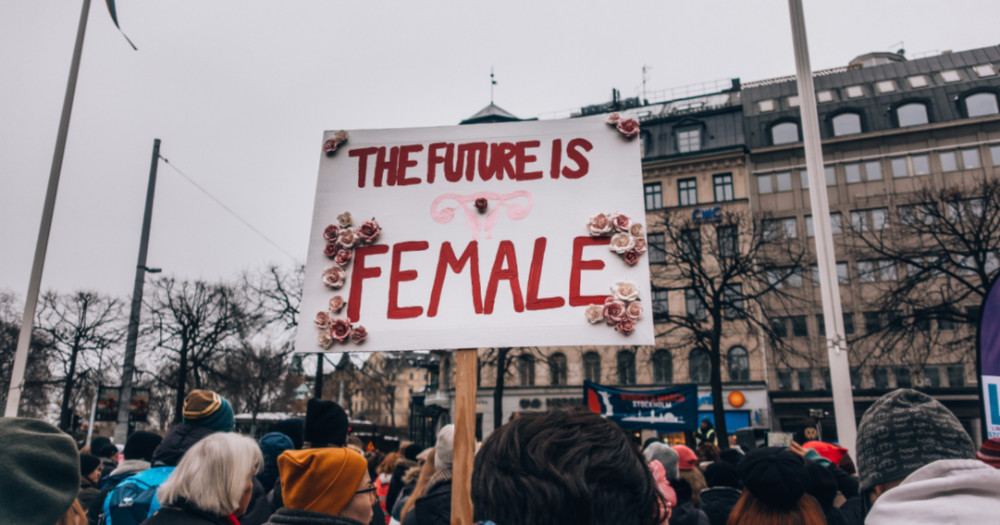You’re walking home late at night, cursing yourself for not getting a lift with a friend. House keys firmly between your fingers as the street lights flicker. How many times have you been told it’s not safe out here? How many times have you experienced the catcalls and lewd words shouted at you on the street in broad daylight? That’s why today we are observing the International Day for the Elimination of Violence against Women.
Recent statistics show that 38% of young women aged 14-21 experience public sexual harassment at least once a month. 63% of girls and young women aged 13-21 don’t feel safe walking home alone, while 68% of women in the UK say they’ve experienced sexual harassment since the age of 15.
Despite these statistics, the UK currently has no law making public sexual harassment a criminal offence. Because of this 80% of parents worry their daughter will experience public sexual harassment, 67% of them instruct their daughters not to walk home alone after a certain time, 47% warn them to avoid certain places, 41% tell them they can’t go out after dark, and 40% advise them not to take certain routes home.
It’s no wonder that 94% of girls think street harassment should be illegal, with 72% of them asserting that if it were a criminal offence, they would be more likely to report it to the police.
Another harrowing statistic from a United Nations study found that bisexual women were at higher risk of experiencing sexual violence and abuse compared to the rest of the LGBTQ+ community.
Several countries, including the UK, US and Canda found that bi women are most likely to experience rape, sexual assault, domestic violence, and stalking.
The intersections between gender, race, ability, etc. further determine the risk of violence an individual faces. Someone with multiple oppressions is the most likely to experience sexual violence.
Thankfully, Plan International UK and Our Streets Now have launched their #CrimeNotCompliment campaign, which calls for a clear law which makes all forms of public sexual harassment illegal.
Unfortunately, public sexual harassment isn’t the only form of violence against women. Since the pandemic began and many have been forced to stay in their homes, cases of domestic abuse have skyrocketed.
Charities that support domestic abuse survivors predict that once lockdown ends, there will be a surplus of survivors running away from their abusers.
However, the Rail to Refuge scheme is a joint initiative between UK rail companies and Women’s Aid which sees train operators cover the cost of tickets for women, men and children travelling to refuge accommodation.
In Ireland, Women’s Aid are providing advice specifically designed for the current COVID-19 outbreak, including a live chat service they will help you flee, locate a safe place to stay and provide you with support to help you come to terms with your experiences.
Recognising the emotional and physical harassment and abuse women go through is a step closer to creating laws and barriers to ensure that women of the future do not have to suffer.
If you are seeking help or support please contact one of the following hotlines that best meet your situation:
They are providing advice specifically designed for the current COVID-19 outbreak, including a live chat service they will help you flee, locate a safe place to stay and provide you with support to help you come to terms with your experiences.
Formerly known as Amen, is the only dedicated national service supporting men and their families experiencing Domestic Violence in Ireland.
Dedicated to creating safety for women and children, the staff at Safe Ireland in domestic abuse services are highly trained and experienced. They are there to listen and respond to your needs. They will not pressure you to make any decisions.
Galop is a LGBTQ+ anti-violence charity. Galop runs a specialist helpline on 0800 999 5428 or you can contact them by email help@galop.org.uk . They will support you to safety.
A domestic abuse charity that provides a free-to-download mobile app, Bright Sky, which provides guidance, support and information to anyone who may be in an abusive relationship or those worried about someone they know you can download at the app store or android store.
Provides online help and resources in a multiple languages, to help sufferers and friends supporting those being abused.
© 2020 GCN (Gay Community News). All rights reserved.
Support GCN
GCN is a free, vital resource for Ireland’s LGBTQ+ community since 1988.
GCN is a trading name of National LGBT Federation CLG, a registered charity - Charity Number: 20034580.
GCN relies on the generous support of the community and allies to sustain the crucial work that we do. Producing GCN is costly, and, in an industry which has been hugely impacted by rising costs, we need your support to help sustain and grow this vital resource.
Supporting GCN for as little as €1.99 per month will help us continue our work as Ireland’s free, independent LGBTQ+ media.

comments. Please sign in to comment.